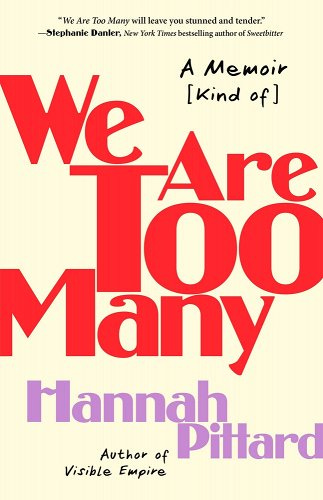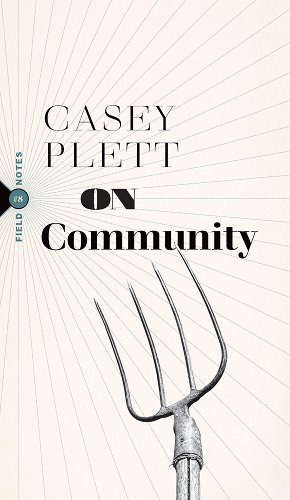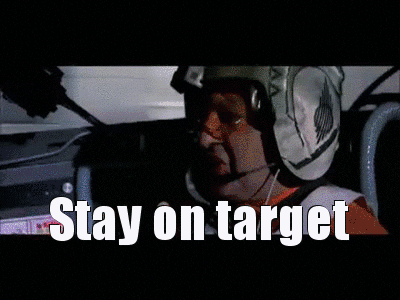I am irritated.
Not a super unique state of mind for me, to be honest. In the present case, I’m irritated by the annual “best books of the year” lists.
My irritation contains multitudes.
I’ve always been irritated by lists that call something the “best” as though this is an objective measurement when even the people who are making the lists know that this is ridiculous. When I do my own year-end wrap-up in my Chicago Tribune column I call it the “Biblioracle Book Awards” to make it clear that what I have to say is entirely idiosyncratic and subjective. To make it even more idiosyncratic, I invent the categories to award. Last year, for example, I gave Notes on Your Sudden Disappearance my “I Laughed and I Cried Book of the Year” award.
My irritation is compounded by the fact that I also click on every best books list that I can find, thus rewarding the creation of these lists with my attention. How am I supposed to resist?
I’m also irritated by my irritation because I know that other people recognize that no one who releases a “best books” list is truly saying that they are the absolute best books, no discussion to be had. Just lighten up, Warner.
But this year, my irritation at these lists is compounded because despite having looked at a lot of best books of the year lists, I have yet to see the best book of the year mentioned on any of them.
So, I am going to tell you what the best book of the year is.
The best book of the year is…
The best book of the year is We Are Too Many: A Memoir (Kind of) by Hannah Pittard. Yes, there were a lot of other good books out there this year that deserve kudos and recognition, but this is the best book.
This is the story of how Hannah Pittard discovered that her husband was having an affair with her best friend, which triggers a mining of a decade’s worth of interactions with two of the people in the world she loved the most. It is a book that is both stunningly exacting and unbelievably messy. I laughed out loud more times reading this book than any other this year (save one1), while also experiencing deep moments of pathos.
The story’s structure through the first half to two-thirds of the book brilliantly mimics the disorientation that Pittard must have experience knowing that her world had been rent asunder in a moment, a moment that happened to coincide with a book tour. Each chapter is a conversation dated to a particular time and place, many with her husband and best friend. You get the sense that Hannah Pittard, the writer, is doing a forensic analysis on her past self, to see if there is a particular spot where things went wrong, or if the worst could have been prevented.
The conversations have a Beckett-ian snap by way of Seinfeld to them, frequently ending with gags that elicit a sharp bark of laughter. Pittard risks and then blows right past “cringe” by simply being forthright, coming out the other side to something that feels honest and true.
Except at the same time, we are to understand that some of these things have been invented, purely imaginary,. The short middle section takes the form of an imagined conversation with the ex-husband, as though they are pouring over the forensic report of the first part of the book together. This is the part that will have you reflecting on your own relationship, the roads travelled together, the roads travelled apart, the things that hold us together or cause us to drift away from each other.
The final section of the book, titled “A Coda in Pieces,” brings a more conventional authorial sensibility to the story as Pittard emerges from the person she was in the past that animates the first part of the book. She has largely moved on with a new, stable relationship and some closure on the past. The ex-husband, for whom she helped secure a tenure track professor gig, has left town. But the echoes of the past are still there because we can probably never escape the echoes no matter how far we run, and maybe we don’t want to anyway.
It’s a wonderful book. I don’t know why it isn’t winding up on more “best of” the year lists. Maybe it’s because it’s a little unconventional. Maybe it’s because it came out in May, and too much time has passed. Maybe it’s because we don’t take these kinds of personal memoirs seriously enough. Maybe the publisher’s publicity campaign could have been better. Maybe people have lousy taste and wouldn’t know a fresh take if it kicked them in the shins.
I think We Are Too Many is destined to be a classic of its kind. Maybe it will fade from our collective awareness, but in the future, someone will find it and wonder why they’d never heard about the book.
Let’s just cut to the chase and make sure more people know about the best book of 2023.
Links
This week at the Chicago Tribune I explain my excitement over both the new Reacher novel (The Secret) and the return of the Amazon Prime TV series. Reacher is more than just a guy who shoots people. Sometimes he also beats them up with his fists.
Also at the Chicago Tribune, Christopher Borrelli has 50 books that make great gifts.
Here’s a best books that moves off the beaten path, “25 must read books from independent presses” by Michael Schaub.
The Whiting Foundation announced the recipients of their $40,000 awards for creative nonfiction works in progress. These are the books people will be talking about in a year or two. I have two thoughts in seeing this news. One is that I really should get it together to apply for this stuff at least once, and the other is that everyone has a better head shot than me.
Lastly, some holiday humor from McSweeney’s written by Aliza Small, “Scenes from a Hallmark Hanukkah Movie Written by Someone Who has Definitely Met a Jew.”
Recommendations
1. My Work by Olga Ravn
2. Our Strangers by Lydia Davis
3. Ducks, Newburyport by Lucy Ellman
4. Monsters: A Fan's Dilemma by Claire Dederer
5. No One is Talking About This by Patricia Lockwood
Mark N. - Poulsbo, WA
Clearly a reader that doesn’t mind a good wander through the socio-cultural. I have just the book, the newly released On Community from my friend Casey Plett.2
I turn in the full draft of the manuscript for my next book next Friday, which means for the next week, this is my spirit gif:
If I’m not mistaken, that particular member of the rebel alliance was vaporized by a laser bolt from a Tie Fighter, but I feel pretty good about where I’m at, so I think I’m going to make it, but for sure, reaching that milestone will be a relief.
In the meantime, why not tell me your “best” book of the year? What happens if you limit yourself to only one choice?
See you next week,
JW
The Biblioracle
All books linked throughout the newsletter go to The Biblioracle Recommends bookstore at Bookshop.org. Affiliate proceeds, plus a personal matching donation of my own, go to Chicago’s Open Books and the Teacher Salary Project, which is advocating to establish a federal minimum salary for teachers of $60,000 per year. Affiliate income is $307.30 for the year.








Let's go with "The best book I read this year, even though it was published in 2021": The Anthropocene Reviewed by John Green.
If I have to limit myself to one - it would be Tom Lake. Others in my top 5 include West with Giraffes, The Reading List, The Many Regrets of Clover, and Lady Tan's Circle of Women.